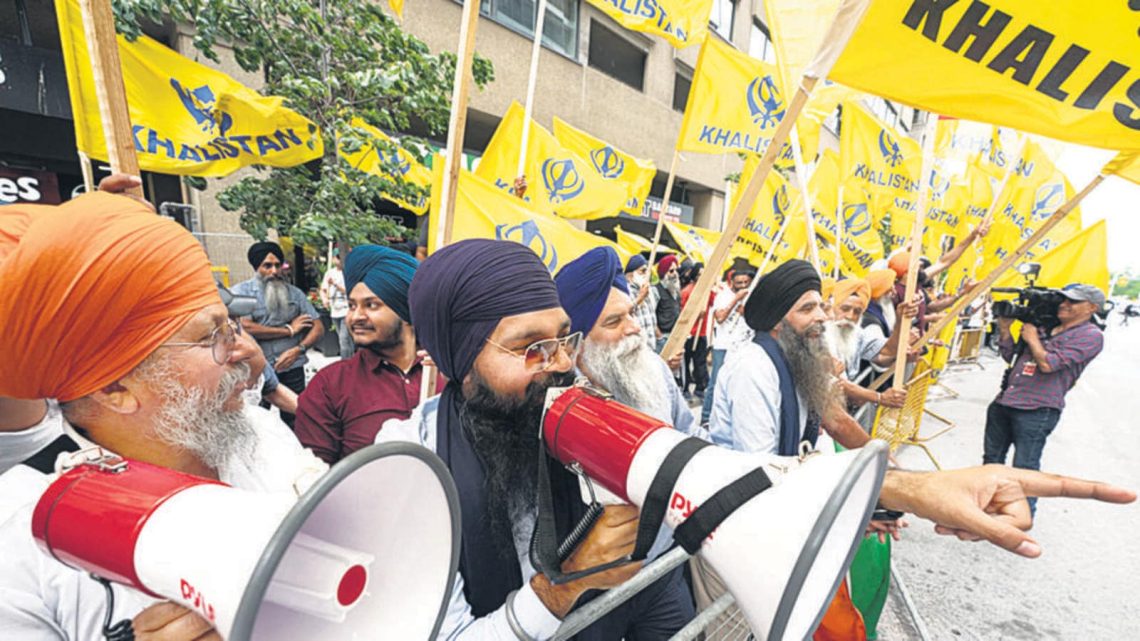
Canada’s Brampton Protest Reflects Tensions over Modi’s Policies Toward Minorities
November 7, 2024Demonstrators protested what they view as the Modi administration’s Hindutva-driven policies, accusing it of suppressing minority rights in India and abroad.
A recent protest outside the Hindu Sabha temple in Brampton, Canada, has drawn attention to the growing tensions between Indian minority communities and the Indian government. Allegedly led by members of the Khalistan movement, the protest aimed to oppose a consular camp held by Indian officials. Demonstrators raised objections to the influence of what they perceive as the Modi administration’s Hindutva-inspired policies, accusing the government of suppressing minority rights both domestically and abroad.
Canadian Member of Parliament Chandra Arya, himself an immigrant from India, condemned the incident, stating that “a red line has been crossed” by Khalistani activists. Meanwhile, the Ontario Sikhs and Gurdwara Council (OSGC) responded by highlighting the need for “understanding and mutual respect” within the community, acknowledging the complex sentiments that drive such protests.
The demonstration at the Brampton temple reflects the broader frustrations and fears of Indian minorities, particularly Sikhs, Muslims, and lower-caste communities, who feel increasingly marginalized under Modi’s government. A series of recent events has amplified these concerns, including claims of targeted attacks on Sikh activists in North America. Recent reports by The Financial Times and Intercept have detailed allegations of Indian government involvement in the killings of pro-Khalistan leaders, dissidents, and Kashmiri activists abroad. One such plot, involving a potential assassination of Sikh separatist leader Gurpatwant Singh Pannun, was reportedly foiled in the United States.
The situation escalated when the Canadian government publicly shared evidence pointing to the involvement of Indian officials in the murder of Sikh activist Hardeep Singh Nijjar on Canadian soil. This revelation further intensified the fears of Sikh and other minority communities, who perceive a pattern of intimidation aimed at silencing dissident voices.
Critics argue that the Indian government’s influence on Hindu diaspora communities serves as a means to extend Hindutva dominance internationally, pressuring the socio-political landscapes of host countries. Some activists and analysts warn that this influence poses a potential threat to global peace, urging the international community to recognize and respond to the underlying issues driving these tensions.
Civil society organizations and human rights advocates are increasingly vocal about the challenges facing Indian minorities, both in India and abroad. They emphasize the need for accountability and a commitment to protecting human rights, stressing that incidents like the Brampton protest are only a glimpse of deeper issues. As global concern grows, there is a call for the Modi government to address these grievances to prevent further escalation and preserve peace and stability in international communities.

